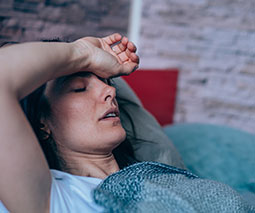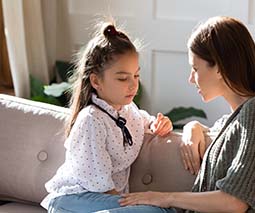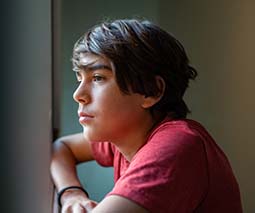Should we be worried about screen time and our kids?
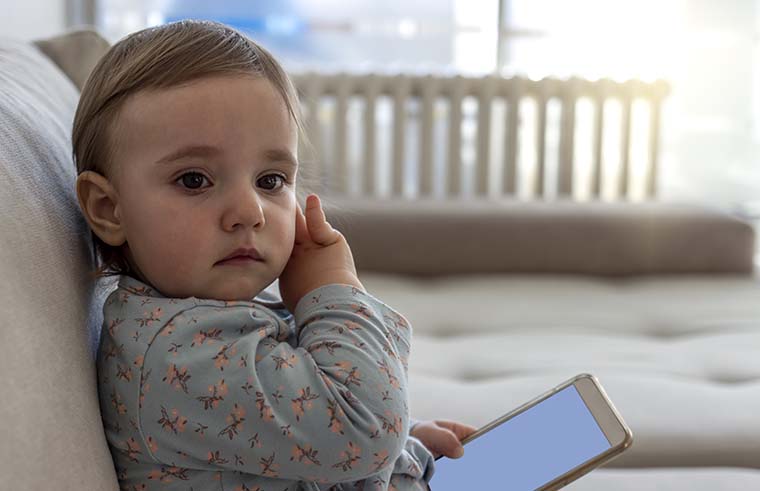
Whether you’re one of the five million or so people in lockdown right now in Sydney or just in the thick of winter, chances are, screens are currently a big part of your life. As parents, we often need our phones and our laptops in order to do our work and if we have small kids at home with us, well, we need them to be occupied!
Should we be worried about how long our kids are spending on digital devices?
Journalist Kasey Edwards, author of Raising Girls Who Like Themselves and a mum of two says, not really.
Screen time research
“My husband Chris and I did extensive investigation into screen time for our book,” says Kasey. “And seriously, almost every pearl-clutching claim is not supported by evidence. In fact, some studies show that when kids watch educational programs, they actually do better than kids who don’t use screens.”
Kasey also notes that even the World Health Organisation (WHO) when they recommend screen time limits in children, admit their recommendations are based on very weak evidence.
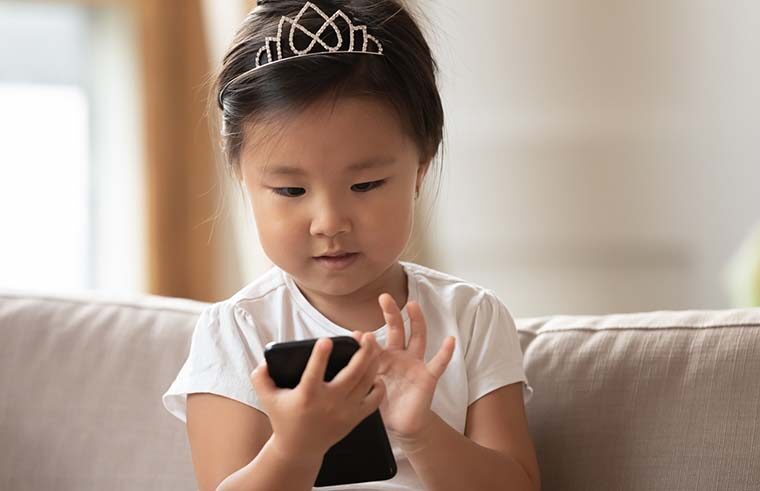
“The evidence is so weak that the Royal College of Paediatrics and Child Health (RCPCH) in the United Kingdom, unlike their colleagues in Australia and the United States, doesn’t publish strict guidelines on screen time for kids,” she adds.
“As the RCPCH explains, there is not enough evidence to confirm that screen time is in itself harmful to child health at any age, making it impossible to recommend age-appropriate time limits.”
Instead, the RCPCH suggests that parents approach screen time based on the child’s developmental age, the individual need and value the family place on other ‘positive’ activities, such as socialising, exercise and sleep. When screen time displaces these activities, some evidence suggests there is a risk to child wellbeing.
Risk to children’s wellbeing ‘negligible’
But, says Christopher Scanlan, academic and co-author of Raising Girls Who Like Themselves and Kasey’s husband, the risk to wellbeing is so small, it’s almost negligible.
“This study – which is possibly my favourite – by Amy Orben and Andrew K. Przybylski in the journal Nature: Human Behaviour, looked at the effects of technology use on wellbeing. It found that technology use ever so slightly leads to a dip in wellbeing. That sounds pretty dire, doesn’t it?
“But you need to put it into context with other everyday activities,” Chris explains. “Orben and Przybylski tested the effects of technology use and regularly eating potatoes and wearing glasses. They found that regularly eating potatoes is almost as bad as technology use when it comes to adolescent wellbeing, and that wearing glasses actually turns out to be worse for adolescent wellbeing than technology use.
“The effects are there, but they’re so vanishingly small that day to day, you would hardly notice them.”
Kasey adds, “I think we forget how much time we spent in front of the TV as kids. A few weeks of screen time will not harm your kids. I can attest to that because our girls spent 112 days of Melbourne’s lockdown glued to their screens. They are completely fine, and life has returned as normal. Lockdown is bloody awful, so anything you can do to make it more fun and less stressful is surely a good thing.”
 Need some support to be the best parent you can be? Our Parent School parent coaching experts can help. Click to find out more or book a one-on-one session.
Need some support to be the best parent you can be? Our Parent School parent coaching experts can help. Click to find out more or book a one-on-one session.

